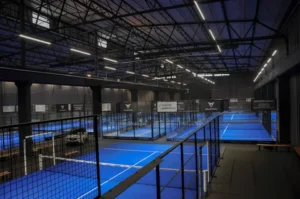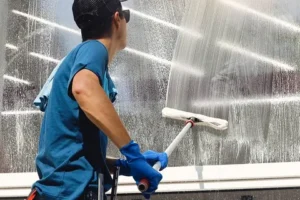Best Air Conditioner Types for Dubai Homes (2025 Guide)
Maintaining comfort in the extreme heat of Dubai requires selecting the appropriate cooling system. With temperatures regularly soaring above 40°C, efficient and reliable air conditioning isn’t just a luxury—it’s a necessity. Knowing the many kinds of air conditioners is the first step if you’re looking for the best ones Dubai has to offer. In this guide, we’ll compare split, window, central, and portable air conditioners to help you choose the ideal system for your home in 2025.
Why Climate Matters When Choosing an Air Conditioner
The climate of Dubai is typified by intense heat, low summer humidity, and mild winters. These conditions place a heavy demand on air conditioning systems, making performance and energy efficiency critical factors. The right air conditioner can ensure year-round comfort, better energy usage, and long-term reliability.
Key Factors to Consider
Before diving into the types of air conditioners, consider these key elements:
- Cooling capacity (measured in BTUs)
- Energy efficiency (look for EER or SEER ratings)
- Room size and layout
- Installation requirements
- Maintenance needs
- Noise levels
1. Split Air Conditioners
Overview
Split ACs are among the most popular air conditioners Dubai residents use in homes and apartments. These devices are made up of an exterior compressor that distributes heat and an inside unit that delivers cool air.
Pros
- High energy efficiency
- Quiet operation
- Sleek, space-saving design
- Ideal for individual rooms or specific zones
Cons
- Requires professional installation
- May not be suitable for renters due to mounting and external unit requirements
Best For
Split ACs are best for bedrooms, living rooms, or any area where quiet and efficient cooling is desired.
2. Window Air Conditioners
Overview
Window ACs are a compact all-in-one cooling solution installed directly into a window frame. Though less popular in new developments, they still serve a purpose in smaller spaces.
Pros
- Lower upfront installation effort
- Easy to remove and replace
- Compact and self-contained
Cons
- Can block natural light
- May produce more noise than split units
- Limited cooling capacity for larger spaces
Best For
Ideal for smaller rooms, rental units, or temporary housing where minimal installation is preferred.
3. Central Air Conditioning Systems
Overview
Central AC systems cool an entire home through a network of ducts. These systems are integrated into the architecture of the home and provide consistent cooling across multiple rooms.
Pros
- Uniform cooling for large areas
- Discreet appearance with only vents visible
- Controlled by a single thermostat
Cons
- High installation complexity
- Requires ductwork maintenance
- May consume more energy if not zoned properly
Best For
Larger villas, homes with multiple rooms, or those seeking a simplified whole-house cooling system.
4. Portable Air Conditioners
Overview
Freestanding devices, portable air conditioners are movable from one room to another. They use an exhaust hose to vent warm air out through a window or other outlet.
Pros
- No permanent installation required
- Easy to move and reposition
- Good for renters or short-term use
Cons
- Less energy efficient
- Can be noisy
- Limited cooling capacity compared to other types
Best For
Small apartments, temporary cooling needs, or backup for an existing AC system.
Comparing the Types: Which Is Right for You?
| AC Type | Cooling Efficiency | Installation | Best Use Case | Portability |
|---|---|---|---|---|
| Split AC | High | Moderate | Bedrooms, Living Rooms | Fixed |
| Window AC | Moderate | Easy | Small Rooms, Rentals | Semi-fixed |
| Central AC | Very High | Complex | Villas, Multi-room Homes | Fixed |
| Portable AC | Low to Moderate | Easy | Temporary or Backup Use | High |
Energy Efficiency and Maintenance Tips
Choose Energy-Efficient Models
Always opt for ACs with high Energy Efficiency Ratios (EER) or Seasonal Energy Efficiency Ratios (SEER). Efficient models consume less electricity, which is particularly valuable given Dubai’s high power usage in summer.
Regular Maintenance
To keep your system running optimally:
- Clean or replace air filters monthly
- Check refrigerant levels
- Schedule annual professional servicing
- Ensure vents and ducts are unobstructed
Use Smart Thermostats
Smart thermostats can help automate temperature settings, reduce energy consumption, and provide remote control via mobile devices.
Climate-Specific Tips for Dubai
- Consider inverter technology in split or central systems for consistent cooling and lower energy use
- Ensure proper insulation in rooms to maintain cooling effectiveness
- During peak hours, block direct sunlight with curtains or shades.
Conclusion
When choosing air conditioners Dubai residents can rely on, it’s essential to match the system to your specific needs. Split systems offer versatility and efficiency for most homes. Window units are practical for small spaces, while central ACs are ideal for larger properties. Particularly for temporary settings or tenants, portable units offer versatility.
Assess your home layout, cooling needs, and long-term goals to select the right air conditioning system. With the right choice and regular upkeep, you can stay cool and comfortable even in the peak of Dubai’s summer heat.













